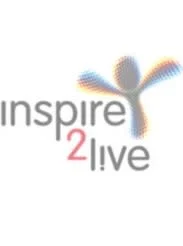When Inspire2Live organised its first Annual Congress in 2011, José Baselga was one of the speakers, and he opened his speech with the following statement: “We are not meant to be here for 1- or 2-months’ life extension. We can do better!”
It was a powerful statement for patients and oncology researchers alike. For patients, because we all want to turn 87 years old with a good quality of life. For the oncology researchers, because they do not want to work for 40 years to conclude that they extended the life of a patient with pancreatic cancer or glioblastoma by 1 or 2 months. As a researcher, you want to make breakthroughs like chemotherapy in blood cancers or what has happened in the past 5 to 10 years with melanoma. These are encouraging results and give meaning to patients and researchers.
For this reason, Inspire2Live set up an initiative called DEEP Diagnostics: Decision Excellence for Each Patient through Diagnostics. For patients with pancreatic cancer and glioblastoma, we combine Whole Genome Sequencing, liquid biopsy, organoids, organ on a chip, tissue culture and mathematical game theory depending on the disease and the choice of the patient and oncologist. On 25 January 2022, we submitted our application for funding to the EU4Health program as an example of the cooperation possible across the fields of patient advocacy, research, clinics and industry. Let’s see if governments will follow.
By way of an example, we use Whole Genome Sequencing to identify the patient’s genetic defect in both types of cancer. For glioblastoma, it is not yet possible to make organoids or organs on chips, so we use the tissue culture technique discovered by the Erasmus Medical Center in Rotterdam. This also allows us to do drug screening, just like we do with organoids and organs on chips, testing the medicine on the patient’s tumour to see if it works or not. We work with many off-patent medicines, and we definitely want “drug repurposing” to be part of our study.
A lot of low-cost medicines work or would appear to work on diseases that the drugs were not initially developed for. This is very important in low- and middle-income countries, enabling the use of safe, effective, and inexpensive medicines for treatments that are not normally available in these countries. And yes, we are aware that diagnostics for determining genetic defects are still too expensive, and we are working on a solution for this.
DEEP Diagnostics starts with a feasibility study: we want to know whether we can provide more valuable information for the patient and oncologist to identify the best treatment. In the second part, which is still to be determined, we will compare the treatment based on the diagnosis and drug screening advice with the standard of care. We are convinced that the outcome will be better than the standard of care, but it goes without saying that we have to prove this.
Why Is This Necessary, and Why Are We Convinced That This Will Make a Difference?
In the last few decades, there has been almost no progress in overall survival and quality of life, the latter often being forgotten. However, for patients, this can sometimes be more important than overall survival. In the same timeframe, there has also been hardly any change in the way we carry out research and trials (phase 1, 2, 3 …). Remember that quote about insanity, “Doing the same thing over and over again and expecting different results …”. We really have to think and work in a different way.
For this reason, we are proposing to combine sequencing and drug screening. Inspire2Live is very much in favour of sequencing, and it was our organisation that tabled and won a motion in the Dutch parliament requesting the health insurance reimbursement of Whole Genome Sequencing. We have to know what’s going on in the tumour!
We support testing drugs outside the body on organoids or on organs on a chip and not only the expensive new medicines, but also the safe, effective, and inexpensive ones (drug repurposing). Inspire2Live is also very much in favour of drug screening. In 2011 it was our organisation that brought together a group of brilliant scientists, including Hans Clevers, who discussed organoids for the first time and which later led to many trials. Organoids are not yet available for glioblastoma and, for this reason, we will be working with the brilliant tissue culture technique from the Erasmus Medical Center in Rotterdam.
Using this approach, we are implementing truly personalised medicine. The whole world talks about it, but when you take a closer look at all the initiatives, you see that they are always drug-centric, i.e. ‘We have a medicine, let’s find a group of patients that fits with this medicine.’ Inspire2Live changes this because our approach is patient-centric, i.e. “Let’s try and find the best treatment for this patient with this genetic defect at this moment in time”.Cancer is a dynamic disease that changes while you look at it, and the treatment has to take this into account. We want personalised medicine to be implemented at the individual level, moving away from a drug-centric approach towards a patient-centric approach. And this is why we are convinced that we will make progress and that we will do better… because we can do better!
Thank you, José Baselga!
Peter Kapitein,
Patient Advocate, Inspire2Live


![Tuberculosis Diagnostics: The Promise of [18F]FDT PET Imaging Tuberculosis Diagnostics: The Promise of [18F]FDT PET Imaging](https://res.cloudinary.com/healthmanagement-org/image/upload/c_thumb,f_auto,fl_lossy,h_184,q_90,w_500/v1721132076/cw/00127782_cw_image_wi_88cc5f34b1423cec414436d2748b40ce.webp)




